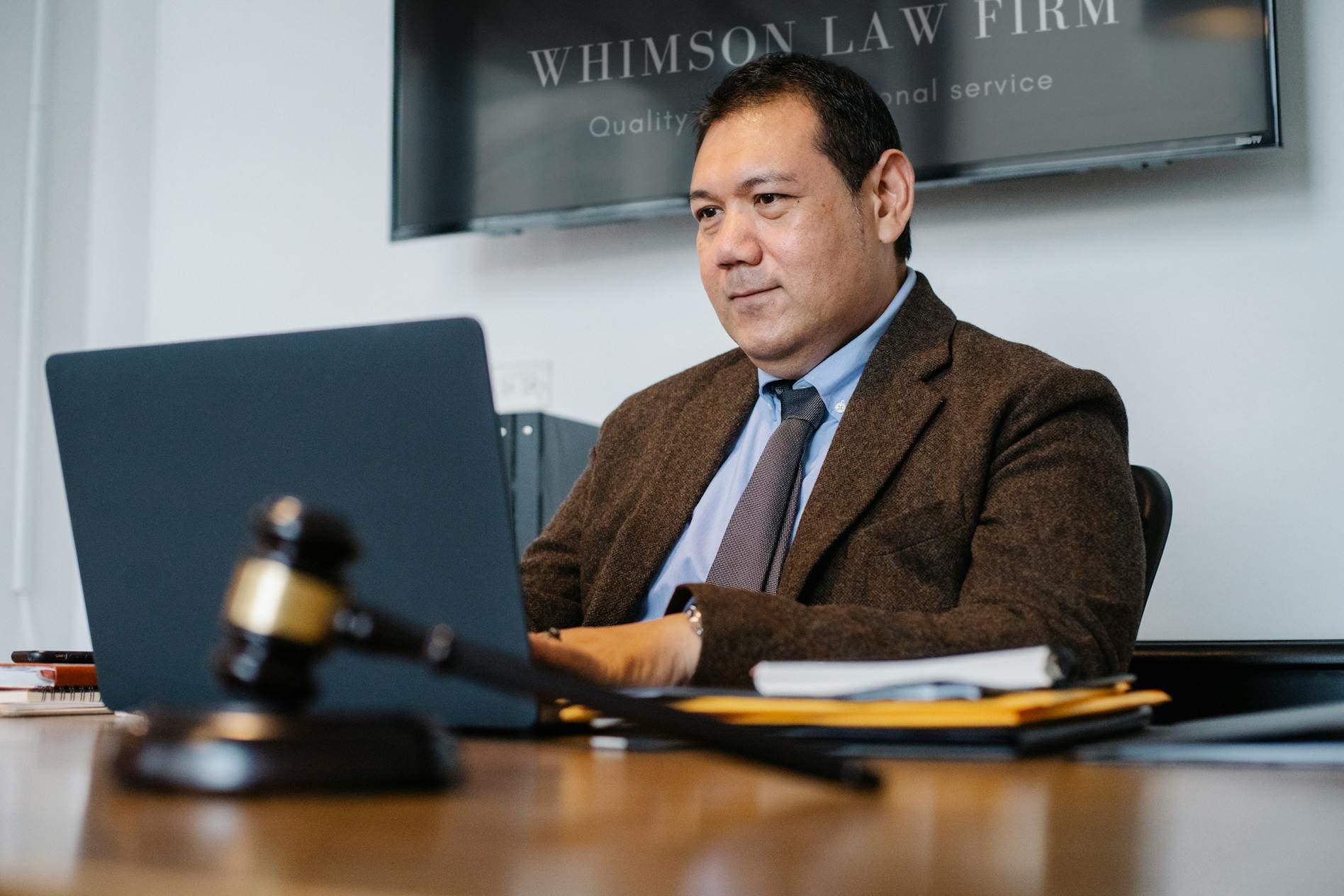Fewer people are creating estate plans today than in previous years. Research shows that in 2024, less than one-third of Americans have a will. Every adult—regardless of age—should at least have a will, and many could benefit from additional estate planning documents such as trusts, powers of attorney, and advance directives. Even if you have an estate plan, it may no longer align with your current goals if it’s outdated.
As we age, reflecting on our mortality is natural. This can prompt us to take actions to secure our legacy. During the peak of COVID-19, many Americans focused on estate planning, leading to a surge in the creation of wills and trusts. However, this trend has since reversed, with fewer people maintaining up-to-date estate plans.
In 2024, 43% of adults over 55 reported having wills, down from 46% in 2023 and 48% in 2020, according to Caring.com. Additionally, the Center for Retirement Research at Boston College notes that the number of people aged 70 or older with wills declined from 73% in 2000 to 64% in 2020. While more young Americans are creating wills, 75% of those aged 18-54 still don’t have one.
Procrastination, uncertainty about how to start, and concerns about complexity and cost are common reasons for delaying estate planning.
Not having an estate plan, or having an incomplete or outdated one, can lead to significant issues. Without a plan, your family may have to turn to the courts for decisions about your estate, which can be time-consuming, costly, and contentious. Disagreements can lead to legal battles and family discord.
According to "Estate Planning for the Post-Transition Period," 70% of estate settlements result in asset losses or family disharmony due to estate planning failures. Common reasons for failure include lack of follow-through, not informing heirs about the plan, and not keeping the plan updated.
For example, setting up a trust to avoid probate or manage assets for a loved one requires transferring ownership of assets to the trust. Failing to do this means the trust won’t accomplish its purpose. Similarly, creating powers of attorney or medical directives and not informing anyone about them renders these documents useless.

An outdated estate plan can lead to many of the same problems as not having one. Loved ones may not be adequately provided for, assets may go to unintended beneficiaries, and your estate may face unnecessary taxes and probate proceedings.
Estate planning attorneys recommend reviewing your plan every few years or after significant life changes. Here are some signs your estate plan may need updating:
Regularly revisit your estate plan, including agents, beneficiaries, and distribution plans. Ensure you have backup beneficiaries and agents and update provisions to address changing circumstances.
Prepare beneficiaries for their inheritance by discussing how to manage it. If you have doubts about their financial acumen, consider placing the inheritance in a trust with specific usage instructions.
Communicate openly with loved ones about your estate plan’s value and what they can expect. Transparency helps prevent surprises and conflicts. Also, inform them where to find your estate planning documents and ensure they have legal access after your death.
Life is constantly changing, and an outdated estate plan can be nearly as problematic as having no plan at all. While DIY estate planning tools are available, they can lead to significant mistakes. To ensure your estate plan is accurate and effective, contact an estate planning attorney in Reno and schedule an appointment.
It has been said that the only thing harder than being an addict is loving one. It can be particularly difficult for a parent to bring a child into the world, full of hopes and dreams about their future, and then watch them spiral down into addiction. Having someone in your life who struggles with substance abuse is never easy, no matter the circumstances, the relationship, or their age. Estate planning often involves dealing with difficult situations. Putting off thinking about these decisions is not the solution. By delaying making plans for how best to care for an addicted loved one when you are no longer around, you risk losing an opportunity and control that can further complicate matters.
Approximately 17 percent of Americans over the age of 12 had a substance use disorder in 2022, according to the latest National Survey on Drug Use and Health. That is equivalent to 48.7 million people, including 29.5 million who have an alcohol use disorder, 27.2 million who have a drug use disorder, and 8 million who had both alcohol and drug use disorders. Despite these grim statistics, the good news is that life after addiction is not just possible—it is the norm. Most people experiencing alcohol and drug addiction recover, survive, and go on to live full, healthy lives. A study from the Centers for Disease Control and the National Institute on Drug Abuse found that three out of four addicts eventually enter recovery.
Treatment and recovery services are critical to successful addiction recovery. Financial barriers to these services are one reason why people struggling with substance abuse go untreated. Family members of addicts might be in a position to provide them with money and material support but worry that doing so will be counterproductive.

There is not a one-size-fits-all solution for assisting a loved one who is dealing with substance abuse. What most experts agree on, though, is that you cannot force someone to undergo treatment. Family members can encourage recovery, but ultimately, the decision to seek therapy is up to the individual. When considering including an addicted loved one in an estate plan, it is useful to remember that estate planning can be uniquely tailored to the needs of each family and individual. Here are some points to keep in mind as you try to fit a drug- or alcohol-dependent person into your plan:
A trust does not guarantee that an addicted person will be protected from their own bad decisions, but it can be structured in a way that helps ensure that an inheritance is used to their benefit and not to their detriment.
A trust allows you—the trustmaker—to set the terms for how the beneficiaries may use and have access to trust funds. The terms can be as specific as you want and may include provisions specifically designed to tackle addiction. For example, the trust could include the following types of terms:
Selecting a trustee is just as crucial as the provisions of a trust created for a beneficiary who suffers from addiction. The trustee should be somebody who will act in the best interests of the beneficiary while striving to preserve family harmony. When selecting a trustee, consider the following:
A final consideration about planning for an addicted loved one is what can happen if you fail to plan. Without an estate plan, the unknowns can be greater—and more consequential. The court will rely on state law to determine who gets your money and property, how much they will receive, and when they receive it. Your loved one may end up with a lump sum of money and no restrictions. This default plan does not address the underlying addiction problem. And if your loved one is not a family member, they may not receive anything from you at all if you do not put an estate plan in place.
You might feel torn between a desire to help an addict in your life and ensuring that your hard-earned money is put to its best use after you have passed away. Or maybe you have been your loved one’s rock, helping them stay sober and avoid relapse, and want to continue doing everything you can for them for as long as you can. Addiction is often a lifelong struggle. To make a plan that provides addiction assistance for someone you care about, even after you have passed away, contact our estate planning attorneys in Reno.
Moving out is a significant milestone in adulthood. For the first time, you might need to find housing, get insurance, sign up for utilities, and manage your finances independently. This can feel overwhelming as you adapt to a new environment and possibly a new career.
With greater independence comes more responsibility. Your family might offer advice on navigating adulthood, but they may not mention the importance of having your legal affairs in order. This includes creating an up-to-date estate plan with the help of an estate planning attorney in Reno.
Compared to previous generations, today's young adults are less likely to have reached traditional milestones like marriage, financial independence, and living apart from their parents. In 1980, 84% of 25-year-olds lived independently, compared to just 68% in 2021, according to Pew Research. Recent Census data shows that the percentage of 25-to-34-year-olds living with their parents has increased significantly since 1960.
Despite high inflation, rising interest rates, and a challenging housing market, there has been a post-pandemic trend toward independent living among young adults. While the percentage of 25-to-34-year-olds living with parents remains high by historical standards, it dropped to 19% in 2022, the lowest level in a decade.

As a young adult, you might feel invincible and not see the immediate need for an estate plan. However, creating an estate plan with an estate planning attorney in Reno is crucial. Many young people haven't heard of estate planning or only have a vague understanding of it, as it's often a topic parents don't discuss.
An estate plan includes legal tools to manage your assets and address your healthcare preferences if you become incapacitated or pass away. There's a 25% chance that someone in their 20s today will experience a long-term disability before retirement. Despite this, only 24% of 18-to-34-year-olds have a will.
Even if you don't have significant assets, having a will is important to manage your possessions and name a guardian for minor children or pets. A will is just one aspect of an estate plan, which also allows you to designate decision-makers if you're incapacitated.
Financial Power of Attorney: Authorizes someone to handle your finances, such as paying bills, managing accounts, and filing taxes. Medical Power of Attorney: Authorizes someone to make healthcare decisions for you. Living Will: Documents your preferences for end-of-life care. Living Trust: Can complement a financial power of attorney and offer additional benefits.
Without these tools, a court may appoint someone to make decisions for you, which could lead to disputes among family members or someone you wouldn't have chosen gaining control.

Your parents may be natural choices to serve as your agents, but consider their availability and proximity. If they are far away or frequently travel, you might choose someone else. Trusted adults, like friends or professionals, can also serve as agents. Ensure they understand their responsibilities and are willing to serve. It's also wise to designate backup agents.
Moving away from home can be both exciting and nerve-wracking. While you're focusing on new connections and routines, don't forget about your estate plan. Being an adult means facing uncomfortable realities and planning for potential challenges.
Take control of your future by scheduling a meeting with an estate planning attorney in Reno. Contact us to ensure your legal affairs are in order.
The tale of Snow White and the seven dwarfs is a classic, with the central conflict revolving around Snow White's relationship with her stepmother. After the king remarried to provide a motherly figure for Snow White, everything seemed peaceful—until the king's death. The Queen's jealousy drove her to plot against Snow White, a conflict that escalated dramatically. This story, although a fairy tale, highlights the potential family discord that can arise when the head of the family dies without an estate plan. Had the king sought the assistance of an estate planning attorney in Reno, the story could have ended quite differently.
We can only speculate about the king’s wishes, but if he had documented them legally, they would have been clear and enforceable. This would have provided clarity and direction, making it easier for beneficiaries and third parties to honor his intentions.
Revocable Living Trust and Pour-Over Will:
A revocable living trust would have allowed the king to manage his assets during his lifetime and specify how they should be handled after his death. By transferring his assets to the trust or naming the trust as the beneficiary, he could have avoided probate and protected the privacy and inheritance of his loved ones. A pour-over will would ensure any assets not initially placed in the trust would be transferred to it upon his death.

Without a valid estate plan, the law would determine who handles the king’s affairs. This might have placed the stepmother in control due to her status as the surviving spouse. With an estate plan, the king could have designated a trusted friend, advisor, or neutral third party as his personal representative or successor trustee to manage his affairs and protect his daughter's interests.
Snow White, being young, likely needed guidance and oversight for any inheritance. The king could have established a trust for her, either within his will or as part of a revocable living trust, detailing specific instructions for her care and the management of her inheritance. This trust could ensure Snow White received her inheritance at appropriate times and under suitable conditions.
Similarly, the king could have provided for his wife by placing her inheritance in a trust, specifying how and when she would receive it, and ensuring any remaining assets would eventually go to Snow White.
The story of Snow White teaches us valuable lessons about family and inheritance. Ensuring your loved ones are cared for and your wishes are honored requires careful planning. To avoid the pitfalls and ensure a happy ending for your family, contact our estate planning attorneys in Reno. We can help you create a comprehensive plan tailored to your needs and circumstances.
When most people think about creating an estate plan, they usually focus on what will happen when they die. They typically do not consider what their wishes would be if they were alive but unable to manage their own affairs (in other words, if they are alive but incapacitated). In many cases, failing to plan for incapacity can result in families having to seek court involvement to manage a loved one’s affairs. It does not matter who you are, how old you are, or how much you have—having a proper plan in place to address your incapacity or death is necessary for everyone. Recently, comedian and late-night talk show host Jay Leno had to seek court involvement to handle his and his wife’s estate planning needs due to his wife’s incapacity. Consulting with Reno estate planning lawyers can help you avoid such situations.

A conservator is a court-appointed person who manages the financial affairs for a person who is unable to manage their affairs themselves (also known as the ward). In Nevada, a conservator is known as a Guardian. The conservator is responsible for managing the ward’s money and property and any other financial or legal matters that may arise. They are also required to periodically file information with the court to prove that they are abiding by their duties. To have a conservator appointed, an interested person must petition the court, attend a hearing, and be appointed by a judge. This can be very time-consuming, and there are court and attorney costs that must be paid along the way. Reno estate planning lawyers can help streamline this process and provide necessary guidance.
In January 2024, Jay Leno petitioned the court to be appointed as the conservator of the estate of his wife, Mavis Leno, so that he could have an estate plan prepared on her behalf and for her benefit. Unfortunately, Mrs. Leno has been diagnosed with dementia and has impaired memory. Her impairment has made it impossible for her to create her own estate plan or participate in the couple’s joint planning. According to court documents, Mr. Leno wanted to set up a living trust and other estate planning documents to ensure that his wife would have “managed assets sufficient to provide for her care” if he were to die before her. Right now, Mr. Leno is managing the couple’s finances, but he wanted to prepare for a time when he is no longer able to do so.
On April 9, 2024, the court granted Mr. Leno’s petition. According to the court documents, the judge determined that a conservatorship was necessary and that Mr. Leno was “suitable and qualified” to be appointed as such. During the proceedings, the judge found “clear and convincing evidence that a Conservatorship of the Estate is necessary and appropriate.”
Although there was a favorable outcome in this particular case, it still took several months for Mr. Leno to be appointed by the court. In addition to the initial filings and court appearances, there will likely be ongoing court filing requirements to ensure that Mrs. Leno’s money is being managed appropriately. Had they prepared an estate plan ahead of time, much of this time and hassle would likely have been avoided. Reno estate planning lawyers can assist in preparing these crucial documents ahead of time to prevent such scenarios.
While many people may dismiss the Lenos’ experience as something that applies only to the rich and famous, the truth is that you could find yourself in the same situation (although with a smaller amount of money and property at play) if you are not careful. Let’s use this opportunity to learn from their mistakes.
We can help you and your loved ones regardless of where you find yourself in the estate planning process. Whether you are looking to proactively plan to ensure that your wishes are carried out during all phases of your life, or if you need assistance with a loved one who can no longer manage their own affairs, give us a call. Our team of Reno estate planning lawyers is here to assist you.
What Is Next for Your Estate Plan?
Having an estate plan is a great way to ensure you and your loved ones are protected today and in the future. When creating an estate plan with our estate planning attorneys in Reno, we look at what is going on in your life at that time. But because life is full of changes, it is important to make sure your plan can change to accommodate whatever life throws your way. Sometimes, we can make your first estate plan flexible to account for potential life changes. Other times, we must change or add to the tools we use to ensure that your ever-evolving wishes will be carried out the way you want.

Life is constantly changing. The following are some important events that may require you to reevaluate your estate plan in Reno:
It is important to know when you create your first estate plan in Reno, that you are not locked into this plan for the rest of your life. The following are common changes we can make to your estate plan to ensure that we adequately address your evolving concerns and wishes.
A will (sometimes referred to as a last will and testament) is a tool that allows you to leave your money and property to anyone you choose. It names a trusted decision-maker (a personal representative or executor) to wind up your affairs at your death, lists how your money and property will be distributed, and appoints a guardian to care for your minor children. If you rely on a will as your primary estate planning tool, the probate court will oversee the entire administration process at your death, but the probate process is expensive, time-consuming, and on the public record.
On the other hand, a revocable living trust is a tool in which a trustee is appointed to hold title to and manage the accounts and property that you transfer to your trust for one or more beneficiaries. Typically, you will serve as the initial trustee and be the primary beneficiary. If you are incapacitated (unable to manage your affairs), the backup trustee will step in and manage the trust for your benefit with little interruption and with less potential for costly court involvement. Upon your death, the backup trustee manages and distributes the money and property according to your instructions in the trust document, again without court involvement.
If your wealth has grown or you have new loved ones to provide for, you may find the privacy, expediency, and potential cost-savings associated with a revocable living trust more appropriate for your situation. Consult with Estate Planning Reno to see if this option is right for you.
At some point, you may decide that you need life insurance—or more of it—to provide for your loved ones sufficiently. If the value of your life insurance is especially high, you may want to consider adding protection for the funds in your estate plan, as well as engaging in estate tax planning. Both goals can be accomplished by using an irrevocable life insurance trust (ILIT). Once you create the ILIT, you fund it either by transferring ownership of an existing life insurance policy into the trust or by having the trust purchase a new life insurance policy. Once the trust owns a policy, you then make cash gifts to the trust to pay for the insurance premiums. These gifts can count against your annual gift tax exclusion, so you likely will not owe taxes at the point of these transfers. Upon your death, the trust receives the death benefit of the policy, and the trustee holds and distributes the money according to your instructions in the trust document. This tool allows you to remove the value of the life insurance policy and the death benefit from your taxable estate while allowing you to control what will happen to the death benefit. An ILIT can also be helpful if you want to name beneficiaries for the trust who differ from the beneficiaries you name in other estate planning tools.
As you accumulate more wealth or become more philanthropically inclined, you may wish to include separate tools to benefit a cause that is near and dear to your heart. Depending on your unique tax situation, using tools such as a charitable remainder or charitable lead trust can allow you to use your accounts or property that are increasing in value to benefit the charity while offering you some potential tax deductions.
A charitable remainder trust (CRT) is a tool designed to potentially reduce both your taxable income during life and estate tax exposure when you die by transferring cash or property out of your name (in other words, you will no longer be the owner). As part of this strategy, you will fund the trust with the money or property of your choosing. The property will then be sold, and the sales proceeds will be invested in a way that will produce a stream of income. The CRT is designed so that when it sells the property, the CRT will not have to pay capital gains tax on the sale of the stocks or real estate. Once the stream of income from the CRT is initiated, you will receive either a set amount of money per year or a fixed percentage of the value of the trust (depending on how the trust is worded) for a term of years. When the term is over, the remaining amount in the trust will be distributed to the charity you have chosen.
A charitable lead trust (CLT) operates in much the same way as the CRT. The major difference is that the charity, rather than you as the trustmaker, receives the income stream for a term of years. Once the term has passed, the individuals you have named in the trust agreement will receive the remainder. This can be an excellent way to benefit a charity while still providing for your loved ones. Also, you may receive a deduction for the value of the charitable gifts that are made periodically over the term. These deductions may offset the gift or estate tax that may be owed when the remaining amount is given to your beneficiaries.
Adding Documents to Care for Your Minor Child
If you have not reviewed your estate plan since having or adopting children, you should consider incorporating some additional tools into your estate plan with estate planning attorneys in Reno. An important tool recognized in Nevada is a document that grants temporary guardianship over your minor child. This can be used if you are traveling without your child or are in a situation where you are unable to quickly respond to your child’s emergency. This document gives a designated individual the authority to make decisions on behalf of the minor child (with the exception of agreeing to the marriage or adoption of the child). This document is usually only effective for six months to a year but can last for a longer or shorter period, depending on your state’s law. You still maintain the ability to make decisions for your child, but you empower another person to have this authority in the event you cannot address the situation immediately.
We are committed to making sure that your wishes are carried out in the way that you want. For us to do our job, we must ensure that your wishes are properly documented and that any relevant changes in your circumstances are accounted for in your estate plan. If you need an estate plan review or update, give us a call. Our expert team at Estate Planning Reno is here to assist you.
Life is unpredictable, and a sudden disability can throw even the best-laid estate plans into chaos. Understanding how to adapt your estate plan to accommodate new disability considerations is crucial for ensuring peace of mind and financial security for you and your loved ones. This guide will help you navigate this challenging situation with the assistance of a Reno estate attorney.

When a disability occurs, it can significantly impact your existing estate plan. Assets you intended to leave to your loved ones may need to be reallocated to cover unexpected medical expenses and long-term care costs. Moreover, the management of your estate might need to be adjusted to accommodate the new circumstances. A Reno estate attorney can help you reassess your plan and make necessary adjustments to ensure your assets are protected and allocated according to your new needs.
One of the first steps to take is reviewing your beneficiary designations. Ensure that these designations align with your current wishes and the new needs created by the disability. This includes reviewing life insurance policies, retirement accounts, and other financial instruments to ensure that your estate plan remains intact and beneficial to all involved. Your Reno estate attorney can assist in this review to ensure accuracy and alignment with your updated goals.
Updating your power of attorney documents is essential. This legal tool allows you to designate someone to make financial and healthcare decisions on your behalf if you become incapacitated. Ensure your chosen representative understands your wishes and is prepared to act in your best interest. A Reno estate attorney can help you explore your options and integrate long-term care insurance into your overall plan.
A living will outlines your healthcare preferences should you become unable to communicate them. Updating this document to reflect any new medical conditions or preferences resulting from the disability is critical. It ensures that your healthcare decisions are respected and followed.
Your Reno estate attorney can collaborate with your financial planner to create a comprehensive plan that addresses all aspects of your financial needs.
Consider investing in long-term care insurance if you haven't already. This type of insurance can cover expenses that traditional health insurance does not, such as nursing home care, in-home care, and assisted living facilities. It can be a
crucial component of your updated estate plan.
Work with a financial planner to budget for the new expenses associated with the disability. This may include medical treatments, home modifications, and daily living assistance. Proper financial planning can help ensure that your estate remains solvent and can continue to support your loved ones.
A special needs trust can be an invaluable tool for managing the finances of a disabled loved one without jeopardizing their eligibility for government assistance programs. These trusts allow you to set aside funds specifically for the care of the disabled person, ensuring their needs are met without compromising their benefits. A Reno estate attorney can help you establish and manage a special needs trust tailored to your situation.
In some cases, establishing a guardianship may be necessary. A guardianship gives someone the legal authority to make decisions on behalf of the disabled person. This can provide peace of mind, knowing that a trusted individual is managing the affairs of your loved one in accordance with your wishes.
Adapting your estate plan in light of a disability requires careful consideration and expert guidance. By understanding the impacts on your current plan, updating essential legal documents, making financial provisions for long-term care, and utilizing tools like special needs trusts and guardianships, you can ensure that your estate plan continues to serve its intended purpose.
At Anderson, Dorn & Rader Ltd., we are here to help you navigate these changes. Contact us for a personalized consultation to discuss how we can adapt your estate plan to meet new disability cons
iderations, ensuring peace of mind and financial security for you and your family.
Estate planning is a vital step in securing your legacy and ensuring that your assets are distributed according to your wishes. However, one crucial question often derails even the most well-thought-out estate plans: "Are my beneficiary designations up-to-date and accurate?" As estate planning attorneys in Reno, we at Anderson, Dorn & Rader Ltd. are here to help you understand the importance of beneficiary designations and how to ensure they align with your overall estate plan.

Beneficiary designations are instructions you provide to financial institutions, insurance companies, and retirement plan administrators, specifying who should receive the proceeds of your accounts upon your death. These designations override your will and trust, making them a crucial element of your estate plan.
Beneficiary designations ensure that your assets are transferred quickly and directly to the intended recipients without the need for probate. This can save time, reduce legal fees, and provide immediate financial support to your beneficiaries. However, they must be carefully managed to avoid conflicts and ensure they reflect your current wishes.
One of the most common mistakes is failing to update beneficiary information after major life events such as marriage, divorce, the birth of a child, or the death of a loved one. Outdated beneficiary designations can lead to unintended recipients, causing family disputes and legal complications.
Naming minor children as beneficiaries without establishing a trust or appointing a guardian can create legal challenges, as minors cannot legally manage inherited assets. Instead, consider setting up a trust or appointing a guardian to manage the assets until the children reach adulthood.
Failing to name contingent beneficiaries—those who will inherit if the primary beneficiary predeceases you—can result in your assets becoming part of your probate estate, defeating the purpose of having beneficiary designations. Always include contingent beneficiaries to ensure your estate plan is comprehensive.
If your beneficiary designations do not align with your will or trust, the designations will take precedence, potentially leading to outcomes that contradict your estate planning intentions. For example, if your will leaves all assets to your spouse, but your beneficiary designations name a former spouse, the former spouse will receive those assets.
Conflicting information can lead to legal disputes among family members, causing delays and increasing the cost of estate administration. Ensuring that your beneficiary designations are consistent with your overall estate plan helps prevent such conflicts and ensures your wishes are honored.
Take the time to review all your financial accounts, insurance policies, and retirement plans to ensure the beneficiary designations are current and accurately reflect your wishes. This includes checking for primary and contingent beneficiaries.
Working with experienced estate planning attorneys in Reno can help you navigate the complexities of beneficiary designations. An attorney can provide guidance on the best strategies for aligning your designations with your overall estate plan and ensure that all legal requirements are met.
Make it a habit to review and update your estate plan, including beneficiary designations, at least once a year or after significant life events. Regular updates help ensure that your estate plan remains accurate and effective, providing peace of mind for you and your loved ones.
Beneficiary designations play a critical role in your estate plan, but they are often overlooked. By understanding their importance, avoiding common mistakes, and ensuring they are consistent with your overall estate plan, you can safeguard your assets and ensure your legacy is managed according to your wishes.
Contact Anderson, Dorn & Rader Ltd. for a consultation to learn how real estate administration works and how you can properly prepare for it. Let us help you navigate the legal landscape to secure your legacy and provide peace of mind for your loved ones.
When it comes to estate administration, TV shows and movies often take creative liberties, leading to widespread misconceptions. While these portrayals can be entertaining, they rarely reflect the complexities of real-life estate planning and administration. As Reno estate planning lawyers, we at Anderson, Dorn & Rader Ltd. are here to clarify some of the common myths and provide accurate information to help you make informed decisions about your estate.

One of the most common misconceptions perpetuated by TV and movies is the immediate distribution of assets following someone's death. Characters often receive their inheritance instantaneously, with little to no legal proceedings.
In reality, the distribution of assets is far from instantaneous. The estate must go through a series of legal procedures, including probate, which can take several months or even years. During probate, the court oversees the validation of the will, payment of debts and taxes, and distribution of the remaining assets to the beneficiaries. This process ensures that all legal requirements are met, and any disputes are resolved before the assets are distributed.
TV and movies often depict the probate process as a long, drawn-out nightmare filled with endless court battles and legal fees. This portrayal can be misleading and discourages people from engaging in necessary estate planning.
While probate can be complex, it is not always the horror story that entertainment media suggests. With proper estate planning, the process can be streamlined and managed efficiently. Creating a comprehensive estate plan, including a will and possibly a trust, can help minimize the probate process's length and complexity. Working with experienced Reno estate planning lawyers can further ensure a smoother and more manageable probate experience.
Another common misconception is that legal challenges to an estate are rare and easily resolved. In movies, disputes over a will or trust are often quickly settled with a dramatic courtroom revelation.
In reality, legal challenges to an estate can be complex, contentious, and protracted. Disputes over the validity of a will, allegations of undue influence, or conflicts among beneficiaries can lead to lengthy legal battles. These challenges require careful navigation by skilled attorneys to ensure that the deceased's wishes are honored and that the estate is administered fairly. Proper estate planning and clear documentation can help mitigate the risk of such disputes.
TV and movies often depict the resolution of estate matters as happening within a very short timeframe. Characters might resolve all estate issues in a single episode or film, giving the impression that estate administration is a quick process.
In real life, estate administration is a lengthy process that involves multiple steps and can take months or even years to complete. The timeline can vary depending on the estate's complexity, the presence of any disputes, and the efficiency of the probate court. Executors must gather and inventory assets, pay debts and taxes, and distribute the remaining assets to beneficiaries, all while adhering to legal requirements and deadlines.
While TV shows and movies can provide an entertaining glimpse into the world of estate administration, they often fall short of depicting the realities involved. Understanding the true complexities of estate administration is crucial for effective estate planning. By dispelling these common myths and working with knowledgeable Reno estate planning lawyers, you can ensure that your estate is managed according to your wishes and that your beneficiaries are well cared for.
Contact Anderson, Dorn & Rader Ltd. for a consultation to learn how real estate administration works and how you can properly prepare for it. Let us help you navigate the legal landscape to secure your legacy and provide peace of mind for your loved ones.
You may have seen the popular ABC TV show, Modern Family, which follows a fictional extended family through life’s ups and downs. It’s a relatable show that addresses many issues life throws our way. Just like the families depicted in the series, it’s crucial to have an estate plan to protect loved ones when someone passes, or becomes unfit to manage their finances. Let’s take a look at some situations that arise in Modern Family episodes and how you can apply the lessons learned to your own estate planning.

Throughout the Modern Family series, various family members start and own businesses. Whether it’s a passion project, investment opportunity, or owner-operator business, it should have a plan for the future as part of your overall estate planning.
The “traditional” lines in familial relationships can get blurred within multi-generational, blended families. For example, Jay often refers to Manny as his son, even though he’s technically his stepson (the child from Gloria’s previous marriage). Though he loves Manny as if he were his own son, the law doesn’t take these emotions into account when it comes to transferring business interests. Legally, stepchildren have no right to inherit a stepparent’s money or property. In situations like these, proper estate planning is essential. Estate planning should include documentation to ensure that assets, including business interests, are left to stepchildren or others outside the traditional inheritance line if that is your wish.
There are several minors within the Modern Family series that would require guardianship in the event that their parents pass away. While Manny expressed a desire to serve as Joe's guardian if Gloria and Jay pass, it is important for them to formally nominate their preferred guardian in their wills. However, it should be noted that such a nomination is not binding and may be contested by others. To mitigate the risk of potential disputes and ensure Joe's wellbeing, it is advisable for Jay and Gloria to have open and candid discussions with both of their families to prevent any possibility of a guardianship dispute.
Rex and Lily would also require guardianship in the event of the passing of their parents. Without a comprehensive estate plan in place, it is possible that a dispute may arise between the families of Cameron and Mitchell. While Lily has spent a significant portion of her life close to Mitchell's family, later in the show, Lily and Rex move to reside with their parents in Missouri, which is closer to Cameron's family. As a result, Rex may develop a stronger bond with Cameron's family as he grows up, which could potentially lead to conflicts between the Pritchett and Tucker families if guardianship for these two children becomes necessary. To avoid such a scenario, it is imperative for Cameron and Mitchell to establish an appropriate estate plan.
Finally, it is important for Poppy and George to have designated guardians in the event that their parents, Haley and Dylan, die. While the family may not possess significant financial assets or property, it is crucial for them to establish basic plans for their children's care, including the appointment of primary and alternate guardians. When the show ends, Haley and Dylan have moved out of Phil and Claire's residence, but still nearby. Furthermore, it is noteworthy that Farah, Dylan's mother, has become increasingly involved in their lives since the announcement of Haley's pregnancy. It is possible that she may express an interest in assuming the role of guardian for the children in the event of the untimely passing of Haley and Dylan.
As a parent of minor children, it is crucial to consider and plan for the potential guardianship of your children should the unexpected occur. While no one can replace a parent's love and care, it is essential to formally nominate a guardian in a last will and testament or through a separate legal document, as permitted by state laws. While the court ultimately makes the final determination, clearly expressing your wishes can provide peace of mind. Furthermore, discussing potential guardianship with your family members in advance can help prevent disputes and ensure that your wishes are respected upon your passing.
As all married couples know, the question of what will happen in the event of the first spouse's death is important to consider. For couples like Phil and Claire, who have built and accumulated their assets during the course of their marriage, it may be natural to consider everything they own as jointly held. Both partners may wish for all assets to pass to the surviving spouse. However, without proper planning, leaving assets outright to a surviving spouse can leave them vulnerable to creditors and predators.
It is important to consider potential scenarios, such as the possibility of a scam artist exploiting a well-intentioned person like Phil, or a successful woman like Claire remarrying and unintentionally disinheriting her children by leaving all assets to her new spouse. To safeguard assets for the surviving spouse, regardless of whether it is their first or third marriage, a qualified terminable interest trust can be an effective solution. This designation of trust allows the surviving spouse to receive annual income from the trust and withdraw principal for specific purposes like health, support, education, and maintenance. It also grants you the power to choose where any remaining assets are allocated upon the death of your spouse.
In blended families, as seen on Modern Family, there are a variety of options for inheritance distribution. As Jay prepares his estate plan, it is important for him to consider how he wishes to divide his assets among his family members. This includes his spouse, two adult children from a previous marriage, a minor son, and an adult stepson, as well as five grandchildren and two great-grandchildren. He will need to make decisions regarding the distribution of assets, including the beneficiaries, the amount, and the timing of the distribution. He will need to consider whether it would be more beneficial to provide for his current spouse, Gloria, through a trust during her lifetime, with the remainder going to his other children, Claire, Mitchell, and Joe upon her death — or if his children should receive their portion of the inheritance while Gloria is still alive. Additionally, he will need to decide if he wants to provide for his stepson, Joe, or leave that responsibility to Gloria if she survives him. With estate planning, this could all be resolved.
When formulating an estate plan, it is crucial to consider the legal requirements for providing for a surviving spouse. In certain jurisdictions, there is a mandated minimum inheritance, known as the elective share, that must be allocated to the surviving spouse. Additionally, in states with community property laws, a surviving spouse may be entitled to a portion of assets acquired during the marriage. While one may assume that their spouse can support themselves without an inheritance, it is essential to have open and thorough discussions about estate planning, and document any agreements to ensure that the surviving spouse's rights and needs are protected. Without proper planning and documentation, a surviving spouse may unhinge the distribution of assets if they have not been taken into consideration within the estate plan, and haven’t waved their minimum inheritance rights.
Phil and Claire will need to evaluate their familial situation and incorporate estate planning to devise a plan for distributing their assets among their children and grandchildren. Given the distinct characteristics of their three children, it is important to consider each of their individual needs. For example, Haley, as a mother of two, may require a larger portion of the inheritance to support her children. Through careful estate planning, Phil and Claire may elect to set aside a specific fund for their grandchildren. Alex, who is very smart, may not require as much financial support due to her education or employment opportunities. Luke, on the other hand, may benefit from estate planning that includes trust money to help him pursue his business ventures and protect him from impulsive decisions.
An estate plan is a valuable tool for ensuring the protection of assets and financial resources for families of all sizes and backgrounds, not only those depicted in television series. The estate planning attorneys at Anderson, Dorn & Rader are dedicated to collaborating with families to develop a personalized plan that reflects the unique characteristics woven into each one. Reach out to our knowledgeable staff to see how we can assist your modern family with a financial plan for the future.
Life is riddled with unknowns. While you can control certain events like whether you’ll have kids or tie the knot, other milestones are not as easy to predict. Life comes at your fast, and sudden, unexpected events can muddle with estate planning. For this reason, make sure your plan is flexible.

You’re able (and it’s recommended) to update your estate plan as you age. But when you die, the plan is more or less set in stone. To curb some of the unknowns that will inevitably arise, it’s a good idea to incorporate milestones into your estate plan. Milestones trigger predetermined decisions that allow you to exercise your wishes and pass wealth to loved ones after you are gone.
If-then statements are pre-made decisions that are carried out based on conditions you set. They are commonly seen in legal documentation, including estate plans.
The concept of if-then statements is straightforward. If a certain criteria is met, then a given action is put into motion. Take the following for example: “If my spouse and I both pass away before our children are fit to care for themselves, [Relative X] will be nominated as their rightful guardian."
Clauses like these can reserve some of the power you have over otherwise unforeseen circumstances. They also offer more flexibility than more simplistic declarative statements (“I leave the property in The Hamptons to my oldest daughter”, for example).
If-then statements can build upon one another to account for various future scenarios. So you could say, “If my spouse and I both pass away before our children are fit to care for themselves, [Relative X] will be nominated as their rightful guardian. If [Relative X] is unfit to care for our children, [Friend A] will assume the nomination.”
The beauty of conditional actions in your estate plan is that they can take on many forms. Aside from if-then statements, you can also include asset allocations or gifts that are put into motion when certain milestones are reached.
Check out these events that are commonly incorporated to trigger gifts or distributions to loved ones:
These milestones are just the tip of the iceberg, and can be combined or modified. For instance, you may give wedding money to a child while storing the rest of their inheritance within a trust. This ensures that if they get divorced, the assets you pass on won’t fall into the hands of their ex-spouse.
You can also set up your estate plan to allocate more money to an individual if the value of that asset increases over time. Remember that if-then statements can be used to make such allocations flexible. The possibilities are endless.
It's a complicated process to populate your estate plan with if-then statements and other milestones. But the work you do up front will protect you and your loved ones from the unknowns of the future.
The professional estate planners at Anderson, Dorn & Rader will help to put all your wishes in writing. To simplify the proceedings, we can spell out your conditional statements with flow charts and diagrams. These can then be integrated into your estate plan to provide clarity after you’re gone.
Whether you’re looking to update an existing life plan, or start from scratch, our estate planning lawyers can help. Contact Anderson, Dorn & Rader to secure your plans for the future and continue your legacy after you’re gone.
Tune into any major news outlet and you’ll hear about the rise – and tumultuous market behavior – of cryptocurrency. As with any other investment that fluctuates with market activities, there are risks associated with buying and selling. No matter how savvy you may be, if you’re investing in crypto, you need an asset protection plan. The following stories show just that.

Christopher Matthews was a businessman and investor who came from good money on both his mother and father’s sides of the family. He passed away in March 2018, and at that time, his estate was valued at $180 million. A large chunk of that came from a hearty $1.8 million investment in cryptocurrency. He bought his shares through a company we’ll call Wayve.
Matthews death was sudden, and as a result, his estate plan was outdated and didn’t reflect his cryptocurrency trading. After some phone calls with Wayve, it was found that the logins to his crypto accounts were kept on several devices throughout the country, and under other names as well.
Luckily, Wayve worked with Matthews’ lawyers to grant access to these accounts, though this isn’t always the case for account holders with less financial esteem. Even though Matthews’ estate attorneys caught a break with the accessing the accounts, they weren’t as fortunate in distributing the Wayze funds in a timely manner. It was critical that the accounts be liquidated to pay off outstanding debts and other tax obligations.
However, Matthews had a withstanding agreement with Wayze that put a cap on how many cryptocurrency shares could be sold at once. This agreement set back the distribution of affairs because the shares had to be sold over the course of several months. While this allocation process was going on, the remaining money in Matthews’ crypto account values began to plummet (thanks to a large dip in the market). By the end of the allocation process, the accounts lost about two thirds of their value, dropping the total value of the estate to less than half of what it was at the time of Matthews’ death.
Matthews’ surviving benefactors would have been in much better financial shape if he had disclosed his crypto trading activities with the individuals involved in his estate. Essentially, they would have been able to sell off shares sooner and reap the benefits of his investments. Instead, the market dip wiped out a large portion of the investments. Furthermore, an actionable plan should have been in place to avoid relying on the cryptocurrency investments to pay off the outstanding debts in the first place.
Steven Thompson was in tune with the latest trends and became an early Bitcoin investor. He even shared this knowledge with online followers in a 2011 video, which earned him 7,000 Bitcoin. Steve set up a digital hard drive with the company SteelLock to store his Bitcoin – in other words, a digital wallet.
It’s been over a decade since Steven set up his SteelLock, and he’s been busy mining Bitcoin ever since. Unfortunately, he’s forgotten the password that he initially used to configure it, and SteelLock only allows 5 wrong attempts before locking the account. To date, his portfolio amounts to well over $100 million. Unless he can remember the login credentials, he’ll never get to see or sell the money accrued.
The key takeaway is that accounts requiring a password need to be secure, but should also have a backup to enable access in the event of a forgotten password or estate distribution. It’s good practice to establish a plan at the onset of investment activities, because before you know it, a decade of investments will accrue and you may just forget your password when it’s needed most.
Jeff Connely was a Bitcoin miner who died doing what he loved – flying his Cessna in the Alaskan Bush. He was only 26 years old when he passed, and at that time, he owned a sizeable share of Bitcoin. The problem? No one, not even his parents or close friends, knew where he stored it, how much he owned, or how to access it.
The amount he owned would have been a nice influx of money that his loved ones could have managed after his passing. But since he didn’t share the details with his family, the shares he owned, and total amount of funds, went with him in the plane crash. Relatives may be able to estimate your net worth and property assets after your death by sifting through email, bank statements, or physical paperwork at your residence, but this is especially difficult to do with Bitcoin.
It’s not always obvious to loved ones that Bitcoin assets are a serious investment and may be worth an astonishing amount. That’s why a plan needs to be put in place. Let a trustworthy person in your network in on the details of your cryptocurrency activities, and how to access them should the unthinkable happen. Not only that, it’s smart to include details on how you want assets to be used when you’re gone. If you don’t do this, you’re putting your hard-earned investments up to the whims of how much documentation you left behind, and how easily loved ones can access it.
Cryptocurrency is a powerful investment tool that can be leveraged to one’s advantage and build generational wealth. It’s also very new to many of us, so working out a management strategy can be uncharted territory. To be prepared for the unexpected, lean on the knowledge of our estate planning professionals. We can craft a sound cryptocurrency plan to protect you and your loved ones. Whether you’re a seasoned crypto investor, or are considering just diving in, we encourage you to reach out to our advisors to plan for the future.
Death is a delicate subject, but can be made simpler with proper planning. In the best case scenario, all paperwork and assets associated with a passing loved one is prepared with the utmost detail prior to death, allowing friends and relatives to fondly remember the deceased and take time to grieve.
Anderson, Dorn & Rader, and the estate planning business as a whole, aims to simplify the legal processes surrounding death so legacies can be transferred to surviving loved ones in a fair, stress-free manner. To accomplish this, savvy individuals will often take measures to ensure they don’t burden their surviving relatives with undue complications like the probate process.
Several tools are available through qualified attorneys to keep your property and monetary assets out of probate. Among these, establishing co-ownership of bank accounts and home titles, as well as lining up beneficiaries on investment and insurance accounts are great to start with. But a revocable living trust is one of the most favored comprehensive options that an individual can set up to avoid probate. Let’s check it out:

A trust is a fiduciary arrangement that grants a third party, or trustee, the legal permission to hold and manage assets on behalf of a beneficiary or beneficiaries. A living trust is enacted while an individual is still alive, rather than upon death. Arrangements can be made to grant you oversight duties on your own living trust until you become incapable of soundly managing your assets, or pass away. Upon your incapacitation or passing, the successor trustee assumes responsibility over the assets in the trust and manages them on behalf of all involved beneficiaries.
The Probate process involves transferring ownership of all monetary assets and property that haven’t been assigned to beneficiaries, or don’t contain a pay-on-death or transfer-on-death designation upon your passing. Often times with probate, the court gets involved, and the long-winded process to account for the assets ensues.
With a trust, your assets are ready to be transferred to your beneficiaries upon your death, if they haven’t already been transferred to the trust while you’re still alive. This puts probate out of the question, as your assets are all accounted for and can be distributed in a timely manner.
Even better, trusts can incorporate pretty much any category of asset: from real estate, to stock holdings, to bank accounts, to family heirlooms. This keeps your legacy from being administered through the probate court, ensuring everything you worked for ends up in the hands of the individuals you deem as successors. Not only does this eliminate costly court costs, but it keeps your records out of the public’s eye and enables beneficiaries to remember the deceased and carry on the good fortune of the trust without running into road blocks.
The language and investment surrounding the establishment of a trust can be daunting, often prompting individuals to delay the process or put it off entirely. But to plan without a doubt where your assets will end up, and with whom, it’s vital to create a trust. It’s peace of mind for both you and your loved ones when you pass.
Planning the details around your death is sometimes a difficult topic to breach, but can be made simpler with the help of your family and knowledgeable attorneys like Anderson Dorn & Rader. While you are ultimately at the helm when it comes to important decisions, our estate planning group truly cares about maximizing the legacy you will leave to your loved ones. For any questions about how to start the trust formation process, please give us a call or fill out our contact form. We look forward to bringing you and your family peace of mind.
The days are flying by, and before you know it, the New Year will be here. Plan ahead and fine-tune your gift giving before the holiday chaos ensues. It’s possible to make annual, medical, and educational exclusion gifts that aren’t technically considered as such under federal gift tax law.

Annual exclusion gifts are one type that you can give that do not trigger federal gift tax. For the year 2022, the gift tax threshold is $16,000 per person. That is expected to increase to $17,000 in 2023.
With annual exclusion gifts, assets amounting to $16,000 or less that are given to an individual within the calendar year are not considered gifts (for tax purposes at least – the recipients will still be thankful!).
Hypothetically, that means you can gift assets amounting to $16,000 or less to as many individuals you’d like up to December 31st of this year, then follow that gifting criteria again for the same recipients on January 1st, 2023 without having to file them under federal gift tax law.
Some sources may indicate that married couples are able to effectively double the annual exclusion amount ($32,000 per calendar year). Even if a married couple abides by this threshold, in some cases they may still be required to file a gift tax return. We recommend consulting our estate planning services to see if you need to report these “split gifts”, as they’re referred to.
Qualified medical exclusion payments / gifts are another type of transfer that aren’t considered ‘gifts’ under federal tax law.
To take advantage of medical exclusions, one must make a payment directly to a healthcare institution or medical insurance provider. Generally, this exclusion can be applied to any medical expense qualifying for a deduction under federal income tax guidelines.
For instance, you could have given $20,000 to the hospital that your grandchild was treated in for an emergency procedure earlier in the year, then give the same grandchild up to an additional $16,000 amount before December 31st, 2022. You could even go as far as to gift another $16,000 on January 1st, 2023. Even in this extreme example, these gifts would not trigger the federal gift tax threshold, as long as they are accounted for and transferred with the exclusions in mind.
An important note: the medical exclusion gift / payment must be made directly to the medical institution or medical insurance provider, not the individual receiving the medical care or insurance money. Even if the payment is “earmarked”, the patient cannot touch it, or the federal tax law will kick in and consider it a gift.
Gifted assets that meet the criteria of educational exclusions are another type of transfer that aren’t considered ‘gifts’ under federal tax law. This includes qualifying payments made directly to both domestic and foreign institutions.
So hypothetically, you could pay for your grandchild’s emergency procedure (referenced above), pay for their educational tuition amounting to $25,000, give them an additional $16,000 by December 31st, then give them $16,000 on January 1st, 2023. That’d be one thankful grandchild, and you likely wouldn’t trigger any federal gift tax returns.
Remember two things before initiating an educational exclusion gift: First, the payment must be made directly to the educational institution, not to the individual enrolled. Next, the payment can only be put towards tuition. Not supplies, books, dorm payments, or other related educational expenses.
It can be exciting to gift money and property to loved ones. After all, they will carry on your legacy in the future. While it’s tempting to simply transfer it to the recipient’s bank account, consider the guidelines surrounding annual, medical, and educational exclusion gifts to avoid the burden of taxes and maximize your financial picture. For assistance in doing so, contact the experienced Reno estate planning attorneys at Anderson, Dorn & Rader. We are happy to walk you through the process to make it enjoyable for all parties involved.
Trust laws exist not only to safeguard the trust and trustor, but to also set guidelines for trustees to abide by. A trustee has a duty under the law to communicate with beneficiaries and inform them of progress or changes in the trust administration. Some duties of the trustee include giving beneficiaries a copy of trust documents, providing information and timelines of the trust administration, and preparing an annual accounting synopsis of the trust’s income and expenses.

It’s not uncommon for trustees to leave beneficiaries in the dark regarding new trust information. Some trustees are unaware of their duties under the law and believe they can do what they please with the trust. However, this is typically not the case, and if your trustee is unresponsive to your requests for information, you have every right to seek further action. Below are some things for you to consider when wondering how to handle an unresponsive trustee.
How do you try to contact your trustee? Is it through email? Do you try to call? Have you sent a letter through the mail? It could be very possible that your trustee simply isn’t checking in on all of their inboxes all the time. A trustee who simply doesn’t check their email regularly may respond quicker to a phone call or text message. If you’re not getting response through phone or texts, you could try sending them a formal letter.
You should also consider the relationship you and the trustee have with each other. If communication typically escalates into hostility between you two, it’s possible that the trustee may be avoiding you on purpose, even though this goes against their duties to keep all beneficiaries informed. If you cannot speak civilly in person or over the phone, it’s important that you keep all communication in writing. Just be sure to ask your questions very clearly and request information without accusations. If this still doesn’t work and your trustee remains unresponsive, it may be time to seek legal assistance.
An attorney may be involved in trust communication between beneficiaries and trustees in one of two ways. Most trustees have attorneys who represent them. If you’re having a hard time getting a hold of the trustee, try contacting their lawyer instead. If a trustee is oblivious to their duties under law, an attorney can ensure they are made aware of their responsibilities and encourage the trustee to comply. Some trustees may not want to directly communicate with beneficiaries of the trust, in which case their attorney may be the direct point of contact. To get information via a trustee’s attorney, be sure to follow up your initial call or text with the requests you wish to receive and any attempts you have made to contact the trustee.
If you feel a lack of proper representation in a situation like this, you may also seek out your own attorney. They’ll be able to clearly identify your rights as a beneficiary, and will give you the backup you need to enforce them. It’s always a good idea to have an objective intermediary that can assist in getting you the information you are rightfully entitled to.
If you and your attorney are still being met with no response, then your last option is to file a petition with your local court. Before you do this though, you should confirm that your attorney is familiar with trust laws and administration. This can make or break your petition’s success. If the trustee fails to respond to the petition, the court can then remove the trustee from the trust. This might also make the trustee liable for any losses or damages the beneficiaries experienced as a result of their lack of communication and ability to perform their duties. A court petition gives additional resources like subpoenas, depositions, and requests for documents to help you get the information you’re seeking. This should be used as the last method for handling an unresponsive trustee, as it can be costly and emotionally messy.
Trustees can conjure various reasons for being unresponsive, but they are legally obligated to communicate with and provide beneficiaries with certain information regarding the trust. Before you go filing a petition right away, try another method of contacting the trustee. If a phone call isn’t working, try an email or maybe send a letter instead. If this still doesn’t garner any results, involve an attorney. They will help get the ball rolling and will likely encourage the trustee to come forward with their information. Only as a last result should a petition be filed with your local court.
If you have any questions regarding how to contact an unresponsive trustee, be sure to reach out to the reliable and experienced trust attorneys at Anderson, Dorn & Rader. We’re happy to help you get the information from the trust administration that you are entitled to, and are dedicated to providing the highest quality estate planning resources available.
You’re probably familiar with federal taxes, especially if you see the line item deduction on your check each pay period corresponding to ‘federal income tax’. Fewer people are aware of other types of taxes though, such as capital gains taxes, gift taxes, estate taxes, and perhaps the most overlooked: the generation-skipping transfer tax.

The federal generation-skipping transfer tax (GST) comes into effect when an individual transfers property to another individual at least two generations down from them. These transfers usually involve gifts given from grandparents to grandchildren and/or their descendants. However, the GST tax can also be triggered by gifts given to unrelated individuals (not including the individual’s spouse).
The GST tax is effective for gifts transferred both during the grandparents’ lifetimes and after their death through an inheritance. The recipients of gifts that trigger the GST tax are commonly referred to as “skip persons”.
The GST was first introduced by Congress in 1976 to eliminate the ability for wealthy people to skip over their children and transfer assets directly to grandchildren, thus avoiding inheritance taxes completely, and estate taxes for the first generation. The GST abides by the gift and estate tax exemption limits, but is a separate tax in itself that applies in correspondence and in addition to any present gift and estate taxes.
Typically, the GST tax comes into effect when the amount transferred to “skip persons” is greater than $12.06 million (a transferor’s lifetime GST tax exemption amount allotted for 2022). The lifetime exemption amount consists of all gifts made throughout the transferor’s lifetime, as well as transfers made at death in the form of wills or trusts.
For instance, if a grandparent gifts $50,000 to each of their 6 grandchildren in 2022, then $300,000 is counted against their lifetime exemption allotment of $12.06 million. If this gift amount is exceeded (both during life & death), a flat 40 percent tax is applied to the overage.
If the child of a grandparent passes away before them, there is an exception to the GST tax. In the case that assets are transferred to a grandchild whose parent has already passed away, the GST tax is not applied. This would not be considered generation skipping, since the grandchild essentially assumes the position of the parent who passed away, facilitating an adjacent generation transfer.
The GST tax also doesn’t apply to medical care or tuition payments transferred directly to a designated institution. In this case, a grandparent could financially assist with a grandchild’s college tuition or medical bills if they give the money directly to the college or hospital.
The vast majority of us do not have to worry about the GST tax structure due to the high lifetime transfer amount of $12.06 million. Even so, it’s smart to be aware of the GST tax, and that the lifetime transfer amount is set to be adjusted to $5 million (to account for inflation) in the year 2026.
Proposals to lower the exemption amount are regularly introduced to Congress. That means the GST tax lifetime amount could change at a moment’s notice. Knowledge of the GST tax is vital if you or a loved one plans to transfer assets to grandchildren.
Additionally, one should keep in mind that, although married couples are essentially granted double the exemption amount, the exemption rules to the GST tax are ‘use or lose it’. It does not work in the same way as the estate tax, where a spouse who passes away can have their unused amount distributed to the surviving spouse. Any unused GST tax lifetime exemption amount evaporates at the time of the first spouse’s death.
This is not an exhaustive explanation of the generation-skipping transfer tax, and you will likely have questions based on your unique situation. The GST is a challenging subject, and few have the experience navigating the laws surrounding it than Anderson, Dorn, & Rader. Our team can assist with any questions if you plan to transfer a property amount sufficient to trigger the GST tax. The best outcome is one that satisfies your desire to pass wealth down to the next generation, so when you’d like to start the conversation on transferring your assets, contact Anderson, Dorn, & Rader: Reno’s trusted estate-planning team.
According to recent, prominent studies, nearly two thirds of American adults do not have a formal estate plan set up.
For those in the minority who have prepared a living trust, will, or other estate documents, you’re one step ahead. However, just because you’ve established these initial steps doesn’t necessarily mean your estate plan is settled. A thorough estate plan requires continual updating as circumstances change. Even if you have been good about making updates, there are crucial components you may have overlooked. Designating beneficiaries and decision makers for retirement accounts or life insurance policies are a prime example.
Your designated beneficiaries and decision makers are living people, so it’s important to consider what may also happen to them. Even the most well thought out plans can go awry, but proper consideration of all potential scenarios can play a large role in ensuring your wishes stay intact after you’re gone.

Short answer: Yes. A proper estate plan lines up multiple decision makers to carry out your wishes.
You should put careful thought into determining which individuals to appoint as decision makers. They’ll need to be trusted, as important decisions regarding your affairs will come their way. It’s also possible that at some point, they will no longer have the capacity or willingness to carry out the decisions asked of them. This is where backup individuals are important. We recommend having at least two backups for each of the above positions.
People, and your perception of them, can change over time. Some of these changes will impact their capacity to fulfill your last wishes. For instance, the person you initially designate as trustee might turn out to lack knowledge of finances. This raises a red flag, because they’ll be the one handling your money after you’re gone. And if your designated guardian turns out to be not so great with children, you’d want to reconsider who you appoint to take care of your kids.
There doesn’t need to be any suspicious behavior to influence a decision maker change. Often times, something as predictable as age plays a factor. Somebody who you designated as a guardian when they were in their 40’s may not be as fit for the position in their 60’s. On the same token, someone too young to appoint as a guardian now may be ideal in ten or so years.
A backup decision-maker is also necessary to replace one that dies, becomes disabled, or expresses that they no longer wish to take on the responsibility of a designated position.
The main thing you should takeaway is to continually check in on your choices for designated decision makers and name backups when necessary. Alternatives act as a fail-safe to ensure that people you love and trust – not the courts – end up making decisions on your behalf after you’re gone.
Your furry, feathered, and even scaled friends are part of your family. Often, they require more day-to-day attention and care than children. So who will take care of them when you’re no longer around?
Pets are certainly not overlooked in your daily life. Some sleep on the bed, eat like royalty, and get groomed handsomely. But it’s possible that your pets weren’t given much thought in the midst of planning your estate with an attorney. After all, there’s a lot on your mind during the process.
Believe it or not, you can name a legal guardian for your pets after you’re gone. Similar to other designated positions, it’s helpful to have backups lined up if your first guardian choice doesn’t work out. Additionally, you can include information on how they can find a suitable home or shelter to be surrendered to in the case that no one can care for your pet. Aside from addressing who the caretaker will be, it’s beneficial to write out your wishes for how your pet should be cared for. This way, the designated guardian will know all of the animal’s quirks, medications, allergies, and their favorite spot to be rubbed.
A named beneficiary is the individual within your estate plan who will inherit your monetary and property assets when you die. When you pass and your estate is administered, your assets are distributed or managed by your designated beneficiaries. Some instances require a contingent (backup) beneficiary.
If you do not have a contingent beneficiary in these scenarios, your assets may be dealt with according to state law. This often involves enacting the probate process. This lengthy process can delay asset distribution, lead to increased settling costs, and cause family infighting. To avoid these unfavorable outcomes, it’s best to designate one or more contingent beneficiaries for the benefit of everyone.
It’s not fun to think about, but you should be prepared for the unthinkable situation where all the loved ones you designate as beneficiaries pass away before you.
Yes, it’s highly unlikely, but it’s happened before. In this case, having contingent beneficiaries will not suffice because nobody will legally be able to accept the assets in your estate. Depending on your state of residence, if you have no surviving beneficiaries, the government could obtain all your money and property by default.
Even though it’s uncommon, this scenario could afflict those with few living relatives. By adding a family disaster plan or remote contingent beneficiary to your estate documentation, you are able to designate a charity or organization that will receive your assets.
Unexpected life events can often prompt people to take action on their estate plan. At the very least, one should have a basic will, but many people still put off accounting for their assets once they’re gone. Procrastination, a perceived lack of money and property, and concern for the cost and energy required to implement an estate plan can turn some away from the process.
The estate planning process is not as costly or intensive as you may think, especially when hiring a knowledgeable estate sale lawyer. And considering the cost of NOT having an estate plan, it would be selfish to leave your surviving family with the burden. Not to mention, your hard-earned assets could end up in the government’s hands if not prepared adequately. For those who have already taken steps to secure their estate plan, this is a great start. With effective back-ups to weather the unexpected, your life plan will be able to determine who will make decisions, take care of your pets, and inherit your assets after you have deceased.
No matter where you are in the estate planning process, we encourage you to reach out to our real estate lawyers to ensure that everything you worked for in your life goes to the people you love and trust. Contact Anderson, Dorn, and Rader to begin your journey to peace of mind for you and your family’s future.
Generational wealth is often the means by which families retain economic status and live comfortably over time. Family members before you worked throughout their lives to make a living, care for their assets, and pass some of that down to the next generation: you. In the event that you are expecting an inheritance, do you have the proper measures in place to confidently acquire and manage it?
Estate planning plays an integral roll in maximizing an expected inheritance by laying out how it will be used by your family in the future. Expert research analyses predict that the largest transfer of wealth in history will occur over the next several decades. However, with an uncertain economic climate and a trend towards spending over saving, heirs of inheritances often spend, lose, or donate large portions of what they receive. Planning for inherited wealth can help you anticipate and prepare for these instances, while sill protecting the legacy left to you. With an expertly-crafted inheritance plan, you are helping to ensure financial security for you and your family.
 Sometimes, our emotions guide our financial decisions, rather than logic. The feelings surrounding the transfer of an inheritance are often unsettling – grief, guilt, anger, confusion. It’s difficult to consider the facts and hard numbers associated with the passing of a loved one. Not to mention, there are lengthy procedures one has to go through to legally confirm the transfer of wealth. It’s important to stay level-headed during the decisions that could affect you and your family’s financial well-being.
Sometimes, our emotions guide our financial decisions, rather than logic. The feelings surrounding the transfer of an inheritance are often unsettling – grief, guilt, anger, confusion. It’s difficult to consider the facts and hard numbers associated with the passing of a loved one. Not to mention, there are lengthy procedures one has to go through to legally confirm the transfer of wealth. It’s important to stay level-headed during the decisions that could affect you and your family’s financial well-being.
An inheritance can be an unexpected stroke of good fortune in a time of loss. Since our brains often classify them as “found” money rather than “earned” money, inheritances don’t tend to be utilized as conservatively as the money we work for. That’s why most inheritances are drained within just five years. A failure to realize the implications of careless spending can get us accustomed to living a lifestyle above our means, only to have it disappear as quickly as it came.
A sudden acquisition of assets and cash can greatly affect you and your family’s life. When handled correctly, you’ll respect the legacy of your loved ones that came before you. When caught unprepared though, you could be burdened by tax payments, careless spending repercussions, and even creditor issues.
Before any pen & paper planning begins, it’s best to have a conversation with your loved ones while they are still living and mentally fit. It can be awkward to talk about what happens to assets after one passes, but go in with the frame of mind that each party will be helping each other. The benefactor will be giving you vital information and consent, and you will be giving them peace of mind that their legacy will live on. By discussing their hopes of how the inheritance will be used after they pass, you’ll get a better understanding which you can use in the planning process.

Using the conversations with loved ones as your guide, it’s crucial to then meet with a financial planner and an estate planning attorney to discuss the amount and types of assets you anticipate inheriting. There are nuances to the processes in which you’ll handle various types of assets. For example, inherited real estate is handled much differently than inherited stocks and bonds. An estate planning attorney can also help you understand the distribution schedule to receive the assets. It could be all at once, in installments, or custom-configured based on a will. Not to mention, a financial planner can help you navigate the taxes associated with your inheritance.
Life happens, and a legacy left to you by a loved one can alter the vision of your financial picture. Anderson, Dorn, & Rader are your trusted team of estate planning lawyers and financial planners in Reno.
If your family is expecting an inheritance, wants to update estate plans, or has questions about the planning process, give our office a call so we can help you maximize your windfall and honor the loved ones that worked hard to pass on their good fortune to you.




